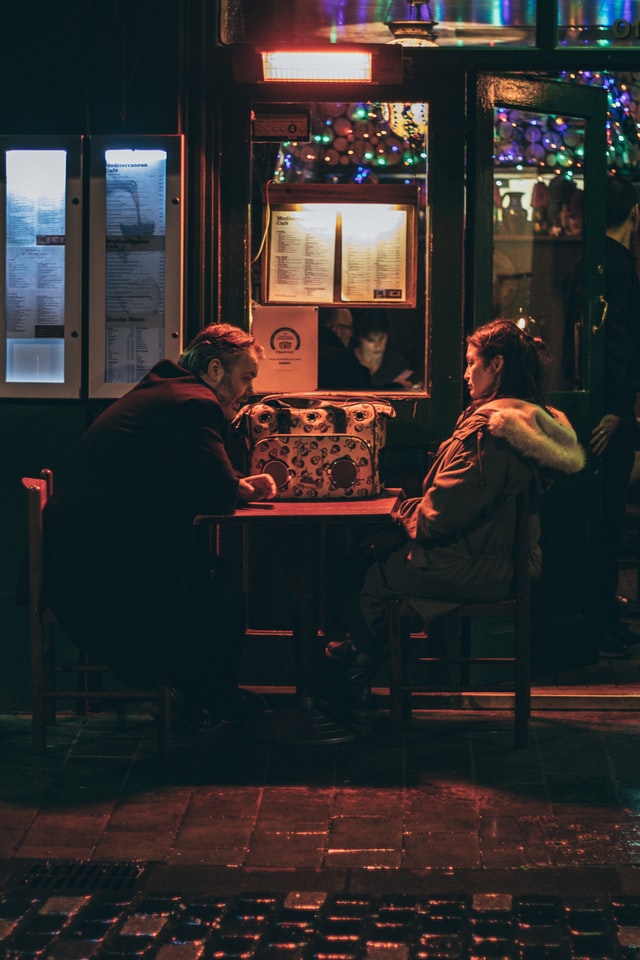Talk in expat groups throughout Beijing and the rest of China is the Chinese government’s new directive to temporarily halt the entry of foreign holders of Chinese visas and residency permits. This is as a result of the surging numbers cases of COVID-19 the world over. It is a preemptive measure that many expected would eventually happen, but no one could have foreseen it happening quite so soon. This move leaves certain groups in limbo.
As we continue to question just how COVID-19 might be the new main culprit in the dissolution of marriages in China, we also continue to receive answers to divorce-related questions in China from divorce lawyer Matthias Schroeder LL.M. In what is turning into an international storm of uncertainty and worry, we continue to wonder whether COVID-19 truly will be the reason why couples say ‘I did but I don’t anymore’.

What would lead to a divorce being less than amicable?
Children and money.
Before a divorce is finalized, are there any special steps/ procedures/ requirements that a couple must meet in order to finalize the divorce?
No – when both parties agree to the divorce. If both parties are Chinese, they can go to the registration office and get a 10 Yuan-10 minutes divorce.
If one foreigner is involved there is a court proceeding necessary before the court in charge.
For a non-amicable divorce in China it is in general required that the couple has separated for at least two years and proof of such separation needs to be provided.
Are divorce rates higher between foreigner-Chinese couples or local couples?
I have no reliable data to show, which divorce rate of the couples is higher. In general, we have more clients where either both spouses are foreign or one is foreign and one Chinese.
The divorce cost of a cross-border marriage is higher and more complex as compared to a local marriage. Therefore, persons in a cross-border marriage are more reluctant to file for divorce. On the other hand, many Chinese couples remain married for good even after their separation. They start new lives as “married bachelors”. This is a practical approach which avoids social stigma. The family network remains intact. Only if one partner wants to live permanently together with someone else or wants to re-marry then divorce becomes unavoidable.
Maintaining a mixed culture relationship tends to be more of a task. Mixed couples meet the same dynamics and challenges as local couples and they have one additional feature – they are from different cultures. If at least one spouse has not learned or does not learn to communicate without too much reference to their own culture, then chances for misunderstandings are more as compared to the non-mixed couples. Misunderstandings can accumulate and may add pressure to the relationship. Or couples learn to accept misunderstandings and find ways or procedures to communicate them. With both we help couples with a unique training program.

Are the reasons the foreigners give for divorce different from the ones offered by local couples?
No. Main reason provided is that the couples (both, local and Chinese) want to stop living together as man and wife.
There is yet one exception. In China, one may find quite a number of fictitious divorces of couples who do not separate but file a divorce to avoid some restrictions, for the acquisition of apartments.
What do you make of divorce cases spiking during the Coronavirus?
It is not my task to make something out of it. Because several factors add up, the spike appears to be remarkable. According to my view the following factors play the main role:
- For several months registration offices had been closed so people had to postpone their divorce and after re-opening those cases add to the normally expected cases.
- During self-quarantine people have less to do and have more time to their disposal without so many alluring distractions often used to procrastinate. So, the cases, which have been procrastinated, add to the number of normal divorce cases. In this category fall also cases, where one spouse has pondered for divorce for a long time already but seemingly did not find the right moment to speak up on it.
Apart from those two main reasons, there are also some aspects which add pressure to a relationship and which could also contribute to the number of divorce cases:
- Change of circumstances:
Most of our actions are to a large extend determined by our routines. We do things the way, we normally do them. Humans like to move in “explored territory” and do not like changes in their daily life. Any change of the general surrounding requires us to adjust our actions. If we become aware, that circumstances are tremendously different from usual or different from our expectations, then our body increases our stress level (to provide energy resources for the adjustment) by issuing stress hormones. Stress is not conducive to a relaxed and peaceful living together. Increased stress levels increase pressure on the relationship. We like people more, who are relaxed as compared to people who are stressed.

- Lack of distraction/relaxation
In addition, many of our relaxation methods are simply not available anymore. Gyms are closed. Cinemas, theaters, museums, parks, karaoke bars are closed. All these “cultural” institutions also serve the function of releasing stress accumulated during work and private life. If stress is not released the general stress level might accumulate and increase pressure to relationships, because nobody really likes stressed people. - Lack of resources
Some modern couples have outsourced part of their domestic life, e.g. childcare, cooking, cleaning and others. One part of those couples come from families, where that had already been the habit. With all restaurants closed, Ayis in quarantine and (at the beginning) delivery services limited, some couples find it hard to care for themselves and to keep the household together. They blame each other for this lack of capacity, which might add a huge amount of stress. If you ever argued with a hungry man/woman/other, you might have an understanding of how intense this can become. - Anxiety
COVID-19 may have the potential to increase anxiety levels. Anxious people are less lovely and this might increase pressure on the relationship. - Financial pressure
The measures to protect against the further spread of the new corona virus have had a detrimental economical effect on many businesses. In particular businesses with low cash reserves may have got under distress. Related money problems might have increased pressure on relationships - Autonomy
As human beings, we made the experience that we are “we” or that I am me and I am not someone else. So, I live my life as me. If someone imposes his rules on my life and I act only upon orders and the space where I am “me” shrinks, then my need for autonomy becomes more obvious to me. This aspect is under-estimated in virtually all relationships because people have the tendency to please the partner, to adapt to his/her needs or to compromise and deviating from doing the things the way they would do them alone. To some extent, this is necessary to make a living together possible. Under normal circumstances, people find room or way or places to be themselves or to generate the feeling that they can be themselves or that they have “choice”. They could go out with friends, they could see a movie, which the partner does not like, they could play something, they could day-dreaming at work, they could go to work and be different at work than they are at home. The change of role (at home vs. at work, vs. with friends) contribute to our feeling as “I am me” and “I am in charge” and “I can do different things” – it provides us satisfaction for our need of autonomy. Also “non-supervised time” that means time where the partner is not around serves the need of autonomy.
During self-quarantine one person may be restricted to only one part of the usual roles he usually lives. The person is together with his partner for 24/7 and has no “unobserved time”.
He/she knows what is expected and he/she does not want to upset the partner. However, after some while he/she feels/notices that he would do things different, if he was alone.
Under normal circumstances that would not bother him/her, because he/she has plenty “room” where the partner is not there to do things in different ways – the need for autonomy would be sufficiently met in those rooms, without the person ever noticing that it has such a need at all. Now that the different rooms are not there, the need of autonomy becomes more likely to be experienced, more obvious, so people (subconsciously) focus more on the things where the partner does things different from how he would do them.
The “room” to be oneself, or the “room” to be outside the partner may become so small, that the need to autonomy becomes an issue and people start feeling trapped or feeling not themselves anymore or feeling, that they are not allowed to be themselves. With no way to articulate this, this need for autonomy could increase the stress level and put further pressure on the relationship.
To remain autonomous in circumstances where you are surrounded by the same people for 24 hours is difficult for some people, in particular if they did not learn to hold their position, to fight for their territory, to be able to stand conflicts.
- One remark to the often stated:
People have argued that self-quarantine leads to people seeing their partner as he really is. However, according to my research, that argument cannot be supported.
First of all, the concept of a person “how it really is” does not reflect reality. There is not “how he really is” or “how he really isn’t”. People just are.
What changes is our perception and our focus of the other person. If we see someone more often than usual, our senses are stimulated differently. We may focus on different aspects of the partner, or we can re-evaluate our assessment or we may just get bored because we get too much of the same stimulus.
Saying “now I see how you really are” in the usual context, more often than not, is just an attempt on putting the blame for an unpleasant feeling on the other.
- All the above
A divorce is rarely the result of a single event and couples usually have enough resilience against single events. However, during self-quarantine several factors may have been triggered at the same time and have met a relationship, which has been weak, to begin with. As you might have heard, for most people the Covid-19 disease only leads to minor symptoms, to a small group it leads to severe problems and those who have been weakened already and who have underlying issues can lead to death. This might apply to marriages as well.

What words of advice would you give couples who are considering divorce before they finally decide to sort out your services?
This question provides a false alternative. Couples should seek my advice before getting married so that they know their rights right from the beginning. Before people look for a potential partner, they should learn to communicate empathically. It also does not hurt to, at any time during the marriage, acquire some knowledge about the dynamics of a relationship. People in a relationship should train to understand the needs of the partner and to make their own needs understood.
At the latest, if spouses or one spouse is thinking of divorce, this would be the best time to start collecting information about the legal aspects as well.
Of course, many of the advice is not only legal advice, but the advice comes from the collected experience from many years of dealing with divorces and with the humans behind each single case.
In general, a separation and divorce can be done without a lawyer in China. In other jurisdictions, e.g. Germany, a divorce filing can only be done with the support of a lawyer. Glad is, who does never need a lawyer and glad is the one who has a good one.
Photos: Unsplash




